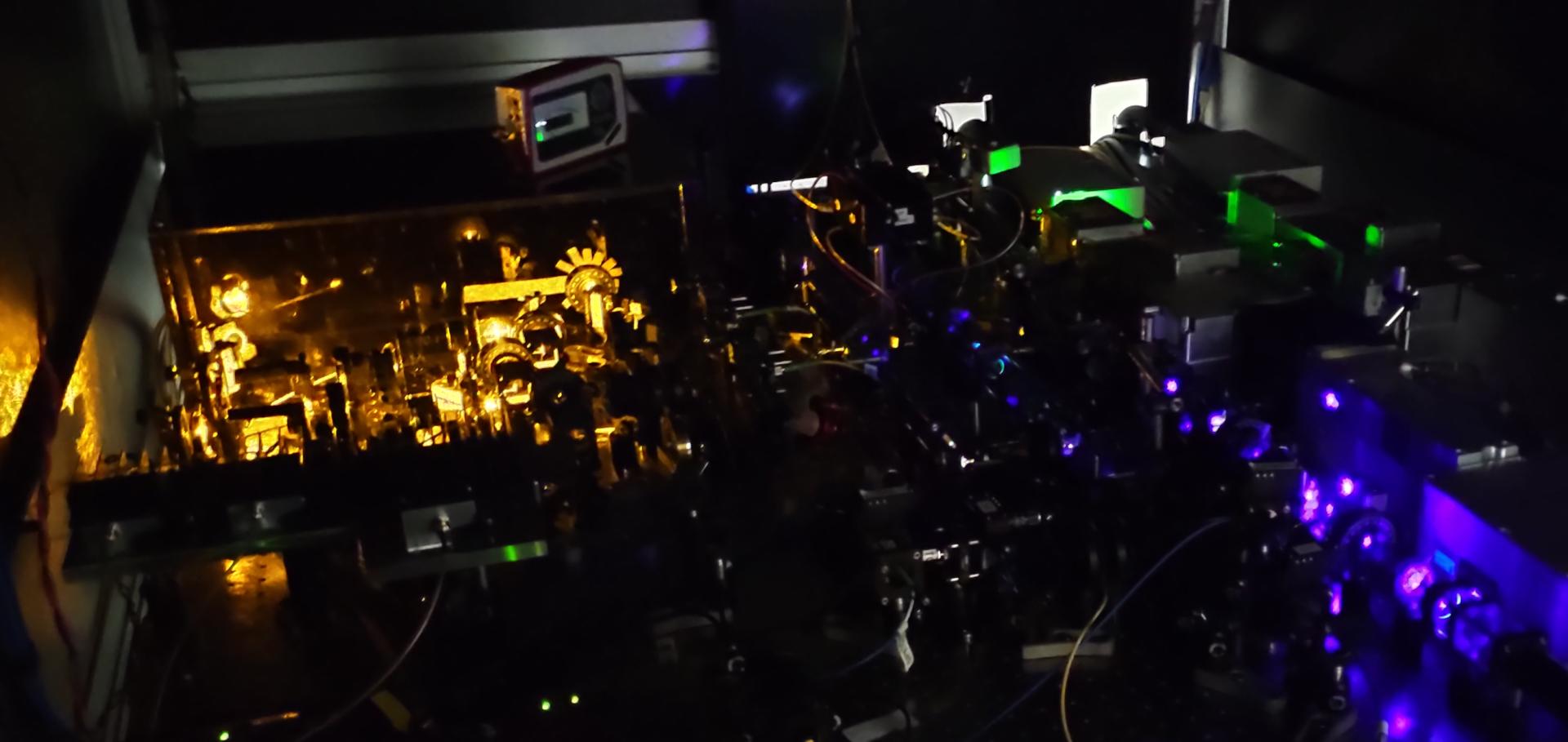Universal Prethermal Dynamics of Bose Gases Quenched to Unitarity
Nature Nature Publishing Group 563 (2018) 221-224
Abstract:
Understanding strongly correlated phases of matter, from the quark-gluon plasma to neutron stars, and in particular the dynamics of such systems, e.g. following a Hamiltonian quench, poses a fundamental challenge in modern physics. Ultracold atomic gases are excellent quantum simulators for these problems, thanks to tuneable interparticle interactions and experimentally resolvable intrinsic timescales. In particular, they give access to the unitary regime where the interactions are as strong as allowed by quantum mechanics. Following years of experiments on unitary Fermi gases, unitary Bose gases have recently emerged as a new experimental frontier. They promise exciting new possibilities, including universal physics solely controlled by the gas density and novel forms of superfluidity. Here, through momentum- and time-resolved studies, we explore both degenerate and thermal homogeneous Bose gases quenched to unitarity. In degenerate samples we observe universal post-quench dynamics in agreement with the emergence of a prethermal state with a universal nonzero condensed fraction. In thermal gases, dynamic and thermodynamic properties generically depend on both the gas density n and temperature T, but we find that they can still be expressed in terms of universal dimensionless functions. Surprisingly, the total quench-induced correlation energy is independent of the gas temperature. Our measurements provide quantitative benchmarks and new challenges for theoretical understanding.From single-particle excitations to sound waves in a box-trapped atomic Bose-Einstein condensate
(2018)
Synthetic dissipation and cascade fluxes in a turbulent quantum gas
(2018)
Elliptic flow in a strongly interacting normal Bose gas
Physical Review A American Physical Society 98:1 (2018) 011601(R)
Abstract:
We study the anisotropic, elliptic expansion of a thermal atomic Bose gas released from an anisotropic trapping potential, for a wide range of interaction strengths across a Feshbach resonance. We show that this hydrodynamic phenomenon is for all interaction strengths fully described by a microscopic kinetic model with no free parameters. The success of this description crucially relies on taking into account the reduced thermalizing power of elastic collisions in a strongly interacting gas, for which we derive an analytical theory. We also perform time-resolved measurements that directly reveal the dynamics of the energy transfer between the different expansion axes.Universal Prethermal Dynamics of Bose Gases Quenched to Unitarity
(2018)


